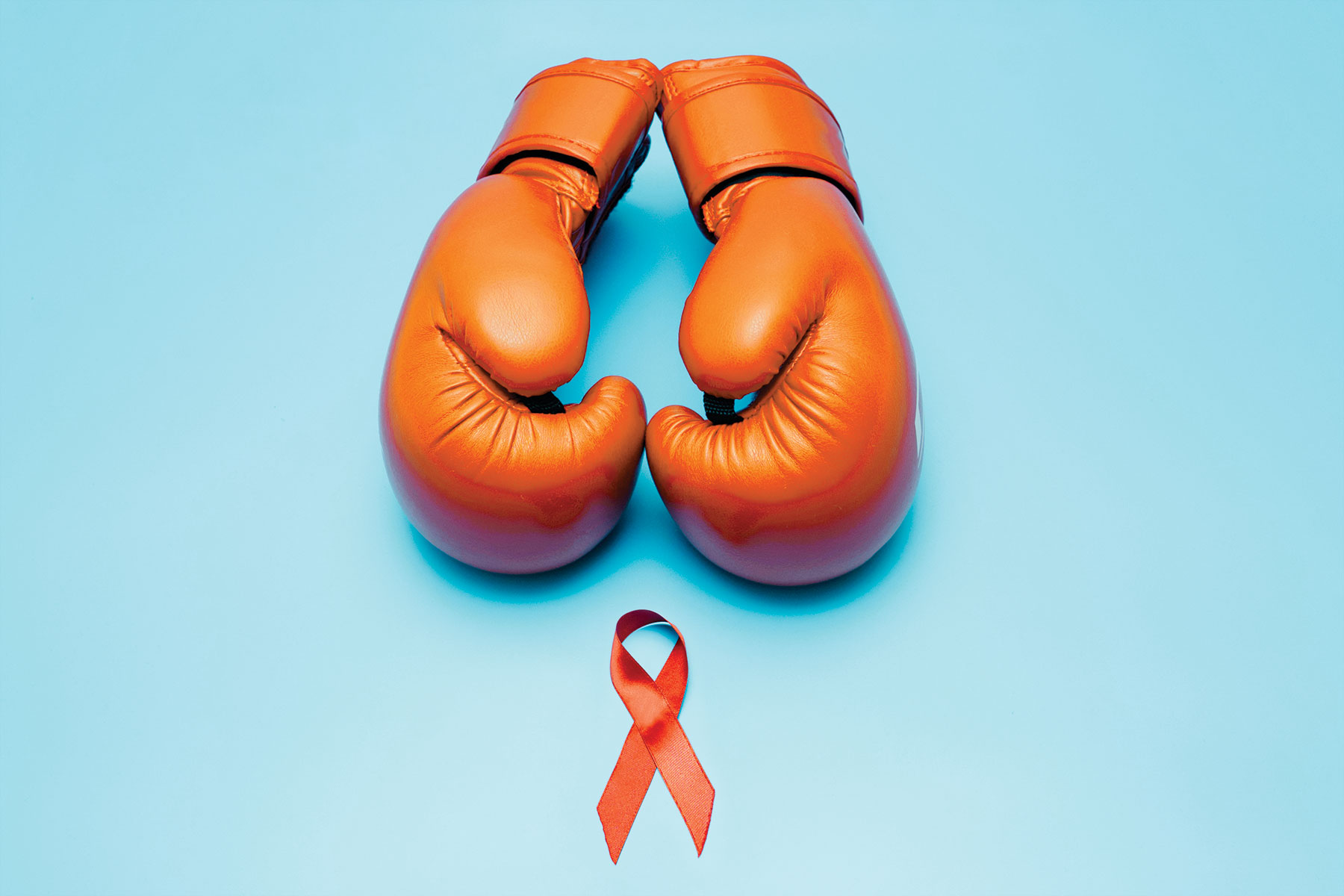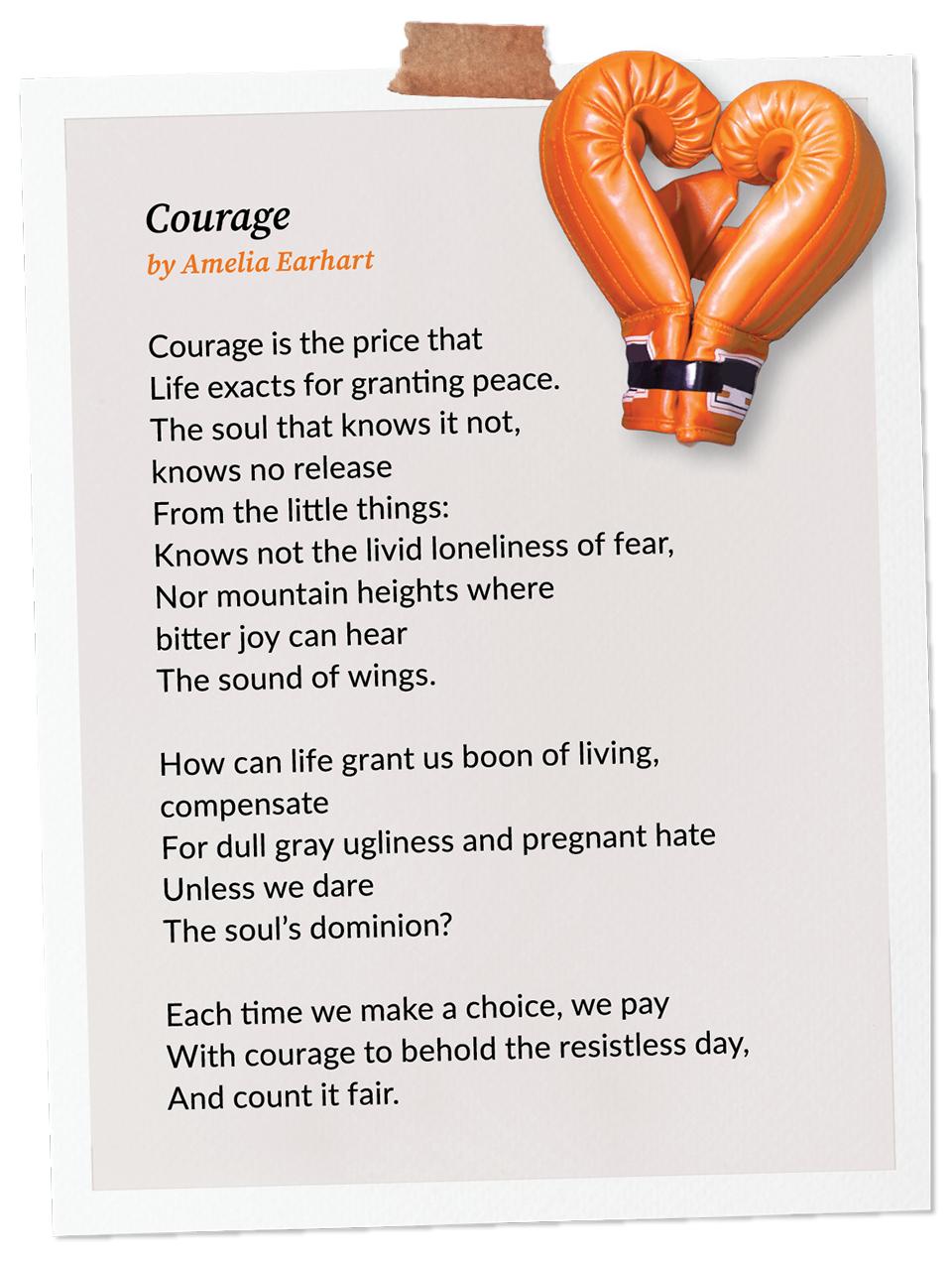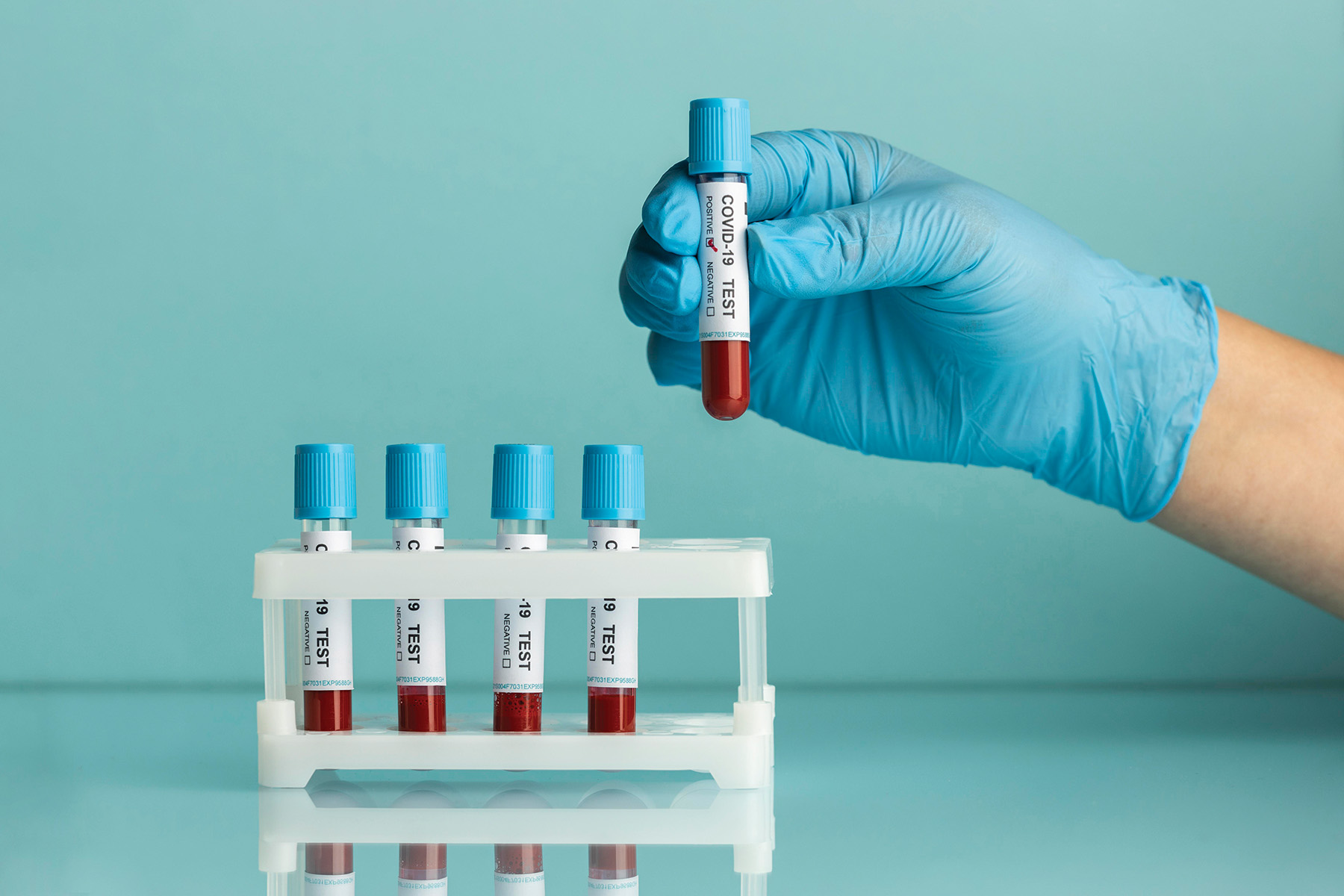
Issue 43 / August 2022
Insights
Fighting the Good Fight – When Does One Stop Resisting the Inevitable?

By Dr Noreen Chan, Senior Consultant and Head, Division of Palliative Medicine, National University Cancer Institute, Singapore
There is a scene in Wes Anderson’s delightfully quirky film “The French Dispatch”, in which one of the characters is praised for his bravery. He replies “I’m not brave, I was just not in the mood to disappoint everyone.”
hat scene came back to me recently when I was sitting with a patient as she shared her cancer journey, which stretched through eight years of multiple types of treatments and investigations. Surgeries, chemotherapy, all manner of scans, regular visits to the Cancer Centre, more blood tests than she could count… it sounded very arduous.
When I asked her how she had coped, she shrugged and said she just followed her doctor’s orders. But after a pause, she added that her primary motivation was her family, and actually, with their encouragement and support, the first five or six years had been quite manageable. They had managed holidays abroad together—her doctors had been good at scheduling the treatments to allow for those breaks—and she had seen one child married, and welcomed a grandchild.
However, the last year or so, things had started to change. The treatments had been getting harder, even gruelling, and the response poorer, such that she was changing to a new treatment every few months. At present she was on a clinical trial which had required her to visit the clinic three times a week. But the doctor had hinted that the last scan result “is not positive”.
“I’m so tired,” she said with a heavy sigh. That statement rested in the silence that followed, and then I offered, “But …” and she continued, “… my children say I mustn’t give up, I should fight on.” And in that moment, her deep love for her family changed from being something that strengthened her, to something that now burdened and isolated her.
There are a few patients and families—and this really is the minority—for whom the fight itself is the most important, no matter what the outcome is. In fact, even when the outcome is certain death, that is acceptable, as long as the patient strives to the utmost.
The language of fighting or battling is commonly used by healthcare professionals as well as caregivers and patients diagnosed with diseases like cancer, but this kind of analogy can be problematic because in any fight, it is assumed that there are winners and losers. Sometimes we are not even sure what winning looks like anymore, or whether that longed-for result is even possible. And if we are not careful, then patients who despite all their efforts are inevitably going to succumb to their illness, will feel like they have “lost”, when realistically, they were never going to be able to “beat” the disease anyway.
There are a few patients and families—and this really is the minority—for whom the fight itself is the most important, no matter what the outcome is. In fact, even when the outcome is certain death, that is acceptable, as long as the patient strives to the utmost. I have had a patient’s son declare that his father must “go down fighting” or “go out with a bang”. Another patient told me that he would want to go through dangerous surgery and die on the operating table: “Don’t worry, I will sign a paper to say the surgeon is not at fault”.
For those patients who do want to fight to the end, I sometimes describe them as wanting “no regrets” and seeking a “glorious death”. They know they are going to die, but they have to know they tried everything. To quote from Dylan Thomas’ famous poem, these are the ones who “rage against the dying of the light”.
At this time, a person’s goals and priorities often change. But when that person no longer wants to carry on the fight, despite the support and urging of family members and other loved ones, that person can end up feeing alone and unsupported.
In my experience, most patients “fight”, or perhaps strive, for something or someone. They are motivated by the chance of a cure, a hope for better health, more time with loved ones, the ability to fulfil life goals, pass important milestones, etc. All these goals are deeply personal and equally valid and are a vital source of support for people going through very difficult periods in their illness journey.
The difficulty comes when the goal posts shift, when a person starts deteriorating, when the disease no longer responds to treatment and when the end of life looms. At this time, a person’s goals and priorities often change. But when that person no longer wants to carry on the fight, despite the support and urging of family members and other loved ones, that person can end up feeing alone and unsupported.
Family members, in their grief, may interpret the person’s desire to give up disease treatment as giving up on them. This perception may be articulated thus: “You don’t love me anymore, you’re not even going to try, aren’t you going to fight for us?” Doing something out of love for others is generous and beautiful. All of us have at some time or other, put our own wants and needs second to someone we care about. But how much is enough?
Finally, is it giving up, or giving in, and what is the difference? These terms are similar, but they are subtly different. To give up means to stop trying, to give in means to “yield to pressure or entreaty”. I tend to think of “giving in” as making a tactical or strategic decision in the face of circumstances. This could be making a graceful retreat, or going with the flow, or changing tack and “fighting” for something that one can “win” at.
I remember speaking with an athlete—a marathoner in fact—who was newly diagnosed with cancer, and grappling with what this meant. I asked him what a good race meant, whether it was when he won a medal or beat his personal best. Not at all. He explained that it wasn’t just physical preparation but psychological readiness, that no matter how much he trained, on the day itself circumstances could be unpredictable. For example, bad weather, other runners crowding the road, or he might not be feeling his best. But he would still try to run the best race he could, and occasionally, he might even have to make a difficult decision of opting out of that race altogether. All his years of training had in fact, already prepared him to run the marathon of his cancer journey. What he needed now was to gather around him the people who would help him to run the race well.
It is not always possible to “beat” a disease like cancer, but it is possible to obtain some “wins”. First decide what you want to do with the time left to you—where you want to be, who you want to be with, what you want to say. Then harness your resources to work towards achieving those goals, making every day the best day possible.
What palliative care promotes is a) honest and balanced conversations that allow people to rebalance their priorities and decide what is most important; b) care that addresses physical, emotional and spiritual suffering of patients and families; and c) support that fosters connectedness and allows a person to live in the most meaningful way, from today until the last day. And that is worth fighting for.





